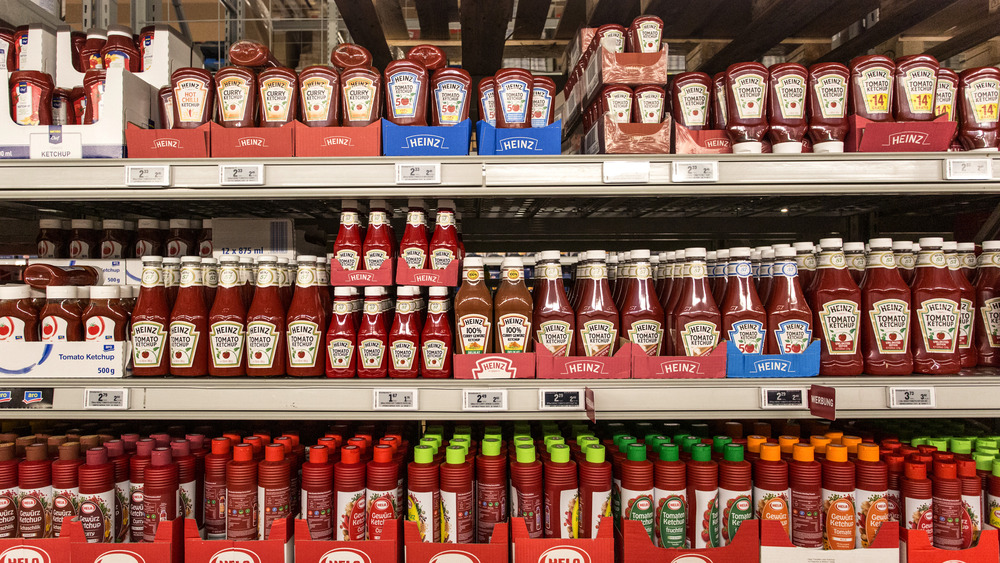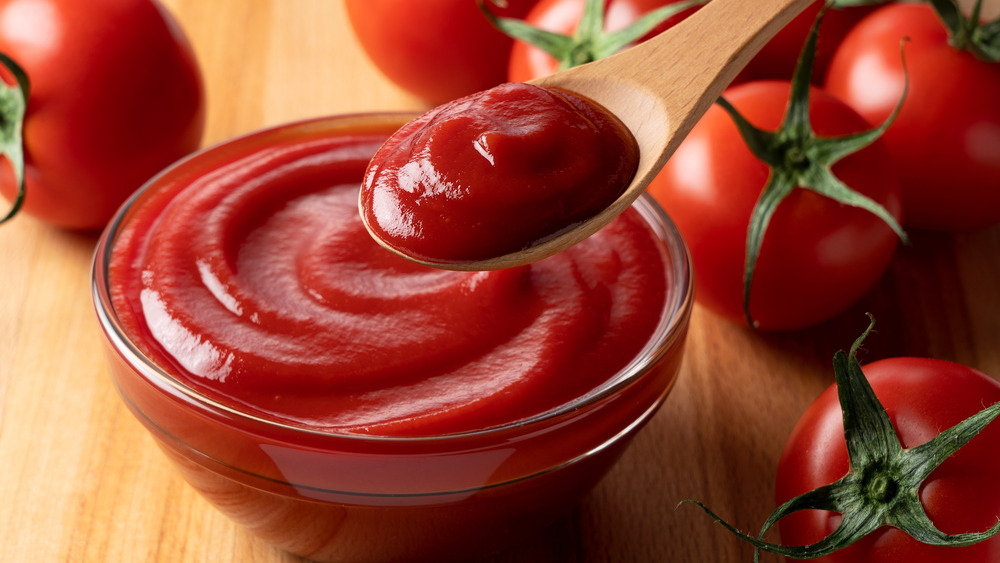This Is What Happens When You Eat Expired Ketchup
It can be incredibly easy to let your condiments expire without even realizing it. You may rarely use them and only in small amounts, so that expiration date on the bottom of the bottle just slips your mind. And while you may have been eating expired condiments for years, once you realize a condiment in your fridge is expired, you want to take the proper precautions. After all, you never know what might happen to you if you don't. For example, while food poisoning incidences from eating expired ketchup are rare, they're still possible.
According to an FDA employee, the administration receives about 50 to 100 reports of severe food poisoning per year linked to expired ketchup, but he also says that he's only seen two deaths linked to expired ketchup. He explained that in those cases there could have been other factors at play, such as contamination from the tomatoes, which in both instances were grown in the same region of California. If you do suspect that you've experienced food poisoning from expired ketchup, watch your symptoms and follow the Mayo Clinic's guidelines as to when to call your doctor.
How do I know my ketchup is bad in the first place?
The easiest way to avoid food poisoning from expired ketchup is to simply avoid eating the expired ketchup at all. However, that in itself can be a little tricky, as ketchup is usually still good long after its sell-by or best-by date and you likely don't want to throw out a perfectly good bottle of ketchup if there's really no need. According to Eat by Date, ketchup can usually last unopened up to one to two years past the best-by or sell-by date, and then it can last up to a year once opened, in the fridge.
To determine if your ketchup is still safe to eat, just give it a good look. Old, potentially unsafe ketchup will often be thicker and darker than your average ketchup and it may have a watery top layer. If your ketchup is starting to look maroon or brown in color, it's likely time to toss it.

